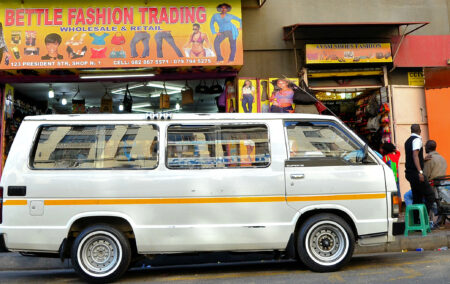South Africa should pursue two sets of objectives in order to sustainably solve poverty and grow the national wealth. The first should be a policy of private sector job creation and the second a policy of increasing savings among workers. These would work together to increase not only GDP per capita but crucially, also capital formation, as the savings would be used to make more investments in the economy.
This would hold long-term benefits for the country, including the government, which would benefit from a widening tax base as well as an increase in the value of total taxable income (corporate and personal income tax) and of taxable transactions for VAT purposes. This would make the country safer by allowing the government to invest in greater capacity in the police and defence forces. It would also allow the government more leverage in international affairs through the deployment of soft and hard power where required, especially on the African continent.
Pursuing these objectives would require some short-term sacrifices on the part of the government, one of which would be lowering income tax rates to increase the income available for companies and individuals to save and invest. The labour law regulatory regime would also need to be reformed in order to minimise or remove altogether any friction experienced by companies when hiring employees, and by potential employees when negotiating with an employer.
Painful cuts.
The reduction of income tax rates will mean that painful cuts will have to be made in the short term. The largest fiscal expenditure is consumed by welfare programmes such as health, education, and social grants. Digging deeper, the programmes themselves are not as expensive as the staff hired to administer them. So voucherising health and education at current expenditure levels while committing to no inflation adjustment of the voucher would be one way to cut spending. We could do the same for grants like the child welfare grant, but some grants like the disability and old age grant should still be adjusted for inflation.
The new Social Relief of Distress (SRD) grant should be done away with altogether. This grant only exists because governments chose to introduce the ill-advised Covid lockdowns, and now finds it politically impossible to end a programme that was meant to be temporary. Perhaps a coalition government, if that is still a possibility, would have a greater willingness to end this unnecessary grant.
When I say the SRD is unnecessary, I do not mean that we do not have poor, unemployed people who need the support. I am merely saying that we are paying people who would otherwise have jobs in a normal economy. We have to bite the bullet, make the necessary reforms, and allow the recipients of the SRD grant to look for jobs, as long as we remove all unnecessary restrictions on what type of job and under which conditions. Let people make their own decisions as individuals with agency.
If people decide that a job paying R500 per month is worthwhile, let them make that decision. They can always resign if they find the job is not to their liking.
Preventing unemployed people from taking the jobs we may not like is not helping anyone, it is harming those it is meant to help.
Strengthen property rights
We should also abandon all talk of expropriation without compensation and further strengthen property rights. This would make the country more attractive for investment when investors know that if they put their money in the country, whatever they put it into will be theirs without question. We should also reduce the large land areas held by government in various forms and convert these to private ownership. Here the imperative of land reform is in harmony with the imperative of increasing investment in the country.
Reducing income taxes significantly, (to zero for certain companies and individuals), reducing if not eliminating altogether any regulations on labour contracts so that workers and employees can negotiate freely, and strengthening property rights would go a long way to increasing the number of jobs as well as the portion of income earned from those jobs that can be saved. That would in turn increase the capital formation in the country and therefore the economic growth and tax receipts.
It would be a win-win situation and would cement the government’s fiscal position as well as the electoral fortunes of the party in power. Our biggest problem is the lack of jobs. There are other issues like crime and more importantly energy. Those would need to be addressed as well. Energy in particular is a ‘do or die’ matter. And with regard to crime, we can hope that a change in material circumstances will allow us a little breathing room. With less regulation, entrepreneurs can start developing solutions to the problem, especially in local contexts, but nothing can be done without energy, so liberalisation on that front is also essential. We have to allow entrepreneurs to fill the gap that Eskom has left.
Nothing can be built without making truly difficult choices. The President speaks about making these choices while avoiding them. We cannot keep kicking the can down the road until we are hit by a crisis from which we cannot recover.
The views of the writer are not necessarily the views of the Daily Friend or the IRR
If you like what you have just read, support the Daily Friend

